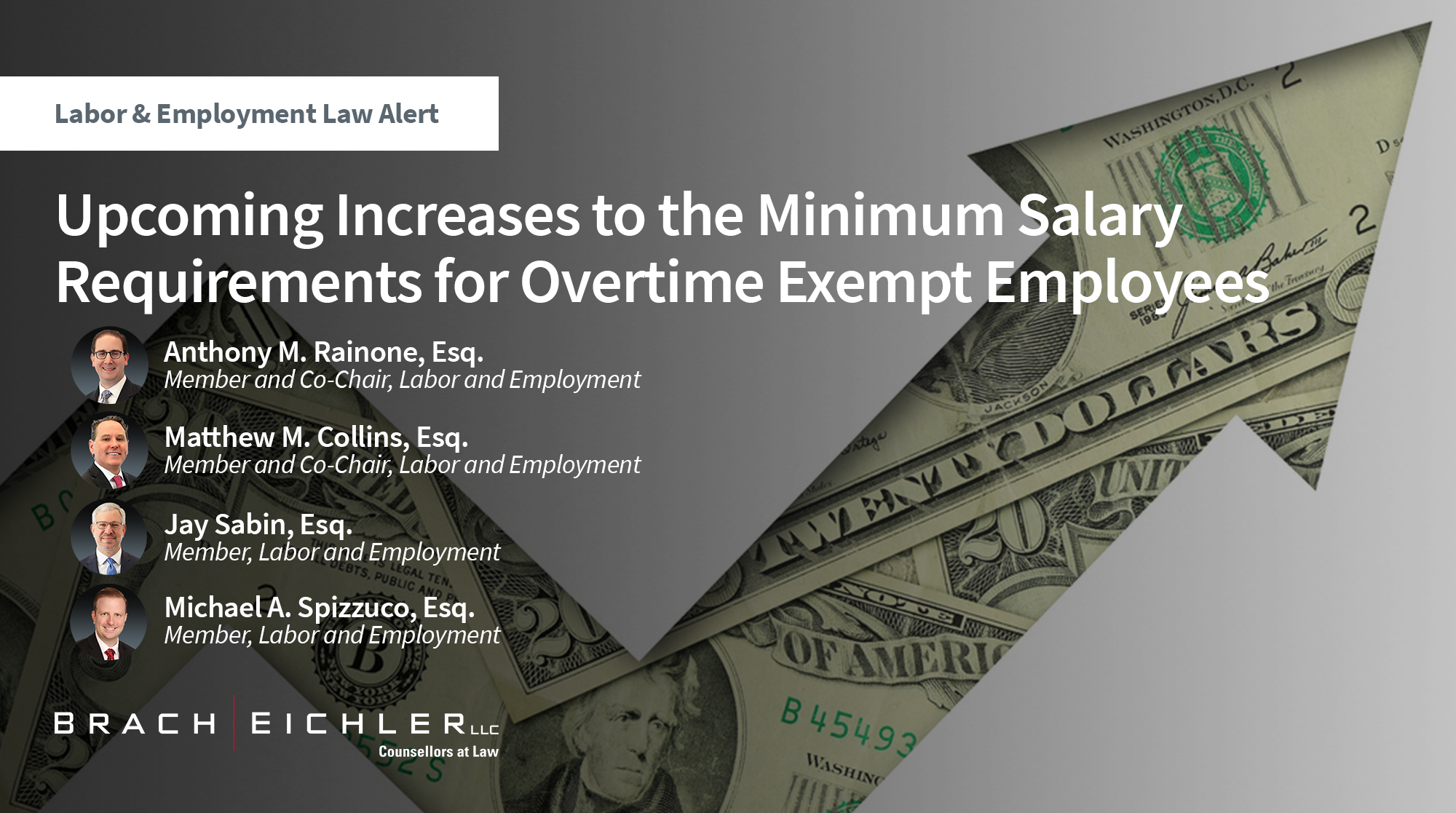Minimum Salary Requirements: Essential Information For Employers And Employees
Source: www.flclaw.net
"Minimum Salary Requirements: Essential Information For Employers And Employees" How does minimum salary requirements impact employers and employees? In today's competitive job market, understanding minimum salary requirements can put you in a better position, whether you are negotiating with a job applicant or searching for a new position.
Editor's Notes: "Minimum Salary Requirements: Essential Information For Employers And Employees" published on [Date] to help you explore significant aspects of minimum salary requirements, staying up-to-date with the latest information is crucial.
A dedicated team of writing veterans, researchers, and fact-checkers analyzed and dug deep into "Minimum Salary Requirements: Essential Information For Employers And Employees" specifications, benefits, use cases, and other variables. To help Employers and Employees comprehend core issues and make informed decisions, this helpful advice will be presented in an easy-to-understand manner.
Key Differences Between Minimum Salary Requirements: Essential Information For Employers and Employees
| For Employers | For Employees |
|---|---|
| Guarantee that employees are fairly compensated | Ensures a fair wage for their work |
| Helps attract and retain qualified workers | Provides a safety net against exploitation |
| Promotes a positive work environment | Can lead to higher levels of job satisfaction |
Main Article Topics of "Minimum Salary Requirements: Essential Information For Employers And Employees"
FAQ
For a comprehensive understanding of minimum salary requirements, various frequently asked questions are addressed below, providing essential information for both employers and employees.

How to find out the minimum salary requirements for a home loan? - Source www.andromedaloans.com
Question 1: What are the legal minimum salary requirements in my jurisdiction?
Legal minimum salary requirements vary across different jurisdictions. Employers are advised to consult the relevant labor laws and regulations in their specific location to determine the applicable minimum wage.
Question 2: How are minimum salary requirements determined?
Minimum salary requirements are typically established by government agencies, such as labor departments or wage boards. Factors considered in determining these requirements include economic conditions, cost of living, industry standards, and labor market dynamics.
Question 3: What are the consequences of paying below the minimum wage?
Paying below the minimum wage is illegal and can result in significant penalties for employers, including fines, back-pay orders, and potential legal action by affected employees.
Question 4: Are there any exceptions to minimum salary requirements?
Exceptions to minimum salary requirements may exist for specific categories of workers, such as apprentices, trainees, or employees in certain industries. Employers should verify if any exceptions apply to their business.
Question 5: How can employees ensure they are receiving the correct minimum wage?
Employees should regularly review their pay stubs and compare their earnings to the applicable minimum wage. If any discrepancies are found, they should promptly contact their employer or relevant labor authorities.
Question 6: What are the potential impacts of increasing minimum salary requirements?
Increasing minimum salary requirements can have both positive and negative effects on the economy and labor market. It can lead to improved living standards for low-wage workers but may also impact business costs and job availability.
Understanding and adhering to minimum salary requirements is essential for both employers and employees. Compliance with legal obligations and fair compensation practices contribute to a stable and equitable working environment.
Refer to the next section for further insights on the importance and enforcement of minimum salary regulations.
Tips
Employers are advised to check the applicable minimum salary rates based on employee demographics, industry, geographical region, employment rules, and other standards, ensuring compliance, avoiding legal issues, and promoting fairness in compensation practices. Employees can also use this information to assess if their current salary meets the legal requirements and industry benchmarks, facilitating informed discussions about compensation with employers. Minimum Salary Requirements: Essential Information For Employers And Employees
Tip 1: Review Local and National Laws
Stay updated on the latest minimum wage regulations at the local and national levels. These vary across regions and may include different rates for regular and overtime hours, ensuring compliance with legal obligations.
Tip 2: Consider Industry Standards
Research industry benchmarks and salary expectations for similar roles. Ignoring industry standards can lead to underpayment and difficulty attracting qualified candidates, resulting in potential legal challenges and talent acquisition issues.
Tip 3: Factor in Geographical Differences
Minimum salary requirements can vary significantly based on the location of the workplace, as cost of living, economic conditions, and other factors impact salary expectations. Overlooking geographical differences may lead to unfair compensation practices.
Tip 4: Review Employment Rules
Some industries have specific employment rules and regulations that set minimum salary requirements. Employers must be aware of these rules and ensure compliance to avoid legal issues and disputes with employees.
Tip 5: Stay Informed of Changes
Minimum salary requirements can change over time due to economic factors, legal revisions, and industry best practices. Keeping up-to-date on these changes ensures ongoing compliance and fair compensation practices.
Tip 6: Promote Transparency
Employers should clearly communicate minimum salary requirements to job applicants and employees, ensuring transparency and reducing misunderstandings. This fosters trust and open communication, leading to improved employer-employee relationships.
Tip 7: Encourage Fair Compensation
Employers should strive to offer fair compensation packages that not only meet minimum requirements but also consider employee skills, experience, and contributions. This promotes employee satisfaction, reduces turnover, and enhances overall business performance.
Tip 8: Seek Professional Guidance
If there is uncertainty or complex legal considerations, employers and employees may consider seeking professional guidance from legal counsel or human resources specialists. This ensures accurate interpretation of regulations and appropriate implementation of minimum salary requirements.
In conclusion, adhering to minimum salary requirements is crucial for employers to maintain legal compliance, attract and retain skilled employees, and foster a positive work environment. Employees can use this information to ensure they are fairly compensated for their contributions. By following these tips, organizations and individuals can promote transparency, fairness, and responsible labor practices.
Minimum Salary Requirements: Essential Information For Employers And Employees
Minimum salary requirements are of paramount importance in ensuring fair and equitable employment practices. Both employers and employees must be aware of the essential aspects that govern these requirements.
- Legal Compliance: Adherence to minimum wage laws and regulations.
- Market Value: Consideration of industry standards and job responsibilities.
- Employee Needs: Ensuring a living wage that covers basic expenses.
- Employer Costs: Balancing salary costs with operational expenses.
- Negotiation: Open and transparent discussions between employers and employees.
- Exemptions: Understanding exceptions to minimum wage requirements for certain categories.
These aspects are interconnected and must be carefully considered when setting and negotiating minimum salary requirements. Compliance with legal regulations, assessment of market value, and consideration of employee needs are crucial. Employers must balance salary costs with business sustainability, while employees should engage in informed negotiations. Exemptions and exceptions to minimum wage requirements must be understood to ensure fair and equitable practices. By addressing these essential aspects, employers and employees can navigate minimum salary requirements effectively, fostering a harmonious and productive work environment.

Minimum Salary to Qualify for Car Finance in South Africa - Source inquiresalary.co.za

Malaysia: Minimum Salary Changes and Exemptions - Source corporateimmigrationpartners.com
Minimum Salary Requirements: Essential Information For Employers And Employees
Minimum salary requirements are a crucial component of contemporary labor market regulations, impacting both employers and employees. Understanding these requirements is essential for ensuring compliance with legal obligations and maintaining harmonious employment relationships. This article delves into the significance of minimum salary requirements and explores their implications for both parties.

Upcoming Increases to the Minimum Salary Requirements for Overtime - Source www.bracheichler.com
Minimum salary requirements establish the lowest permissible wage that employers can pay their employees. They are typically set by government regulations or collective bargaining agreements. These requirements serve several important purposes:
- Protection for Employees: Minimum salaries provide a safety net for workers, ensuring they receive fair compensation for their labor and can meet their basic needs.
- Economic Stability: By setting a minimum wage, governments can help to reduce income inequality and boost consumer spending, contributing to overall economic growth.
- Fair Competition: Minimum salaries prevent employers from engaging in unfair wage practices, ensuring that all businesses compete on a level playing field.
For employers, complying with minimum salary requirements is not only a legal obligation but also a sound business practice. Paying fair wages can enhance employee morale, reduce turnover, and attract top talent.
It is important to note that minimum salary requirements can vary across jurisdictions and industries. Employers and employees should stay informed about the specific regulations applicable to their location and occupation.
Conclusion
Understanding minimum salary requirements is essential for both employers and employees. These requirements protect workers from exploitation, promote economic stability, and ensure fair competition. By adhering to these regulations, businesses can create a positive and productive work environment, while employees can have confidence that they are being compensated fairly for their contributions.
As the labor market continues to evolve, it is likely that minimum salary requirements will remain a topic of ongoing debate and adjustment. However, their fundamental purpose of ensuring fair compensation and protecting workers' rights will undoubtedly endure.
Kelsea Ballerini Brings Her Heart First Tour To Toronto For An Unforgettable Night Of Music, Dia De Sorte 1023: Unlocking The Path To Financial Freedom With Brazil's Lottery, Goianésia Vs. Abecat Ouvidorense: Clash Of Football Giants, Agustín Rogel: Uruguayan Football Star And Cornerstone Of Defense, Ceará Matches Results: Latest Scores And Standings, Philippe Coutinho: Ex-Liverpool Star Back To Haunt Anfield In Champions League Clash, Dr. Lígia Bahia: Renowned Cardiologist Transforming Heart Health In Brazil, Al Taawon Vs Al-Ittihad: Saudi Pro League Match Preview, Team News, And Prediction, Chelsea Vs. West Ham: Premier League Match Preview, Team News, And Predictions, PSD Template For Creating A Modern Portfolio Website,